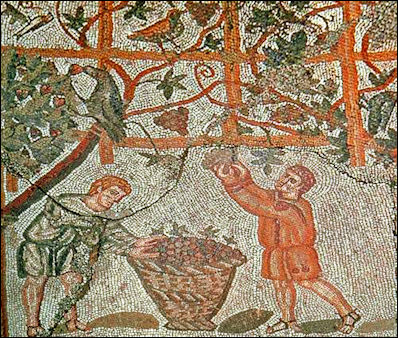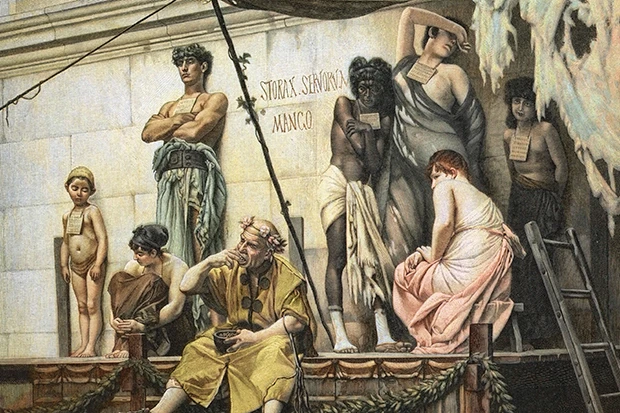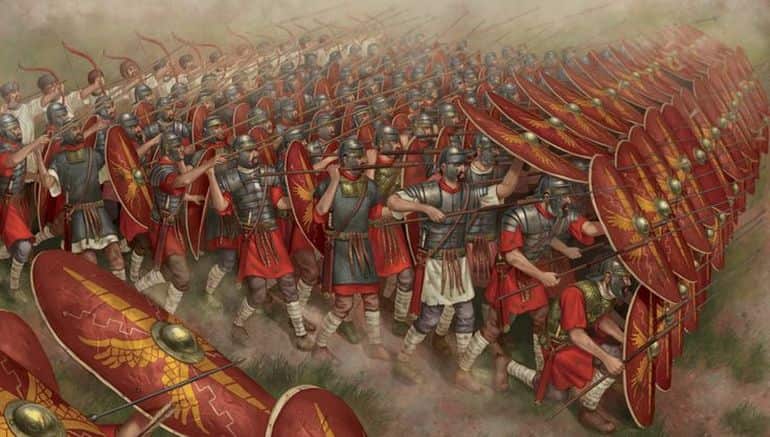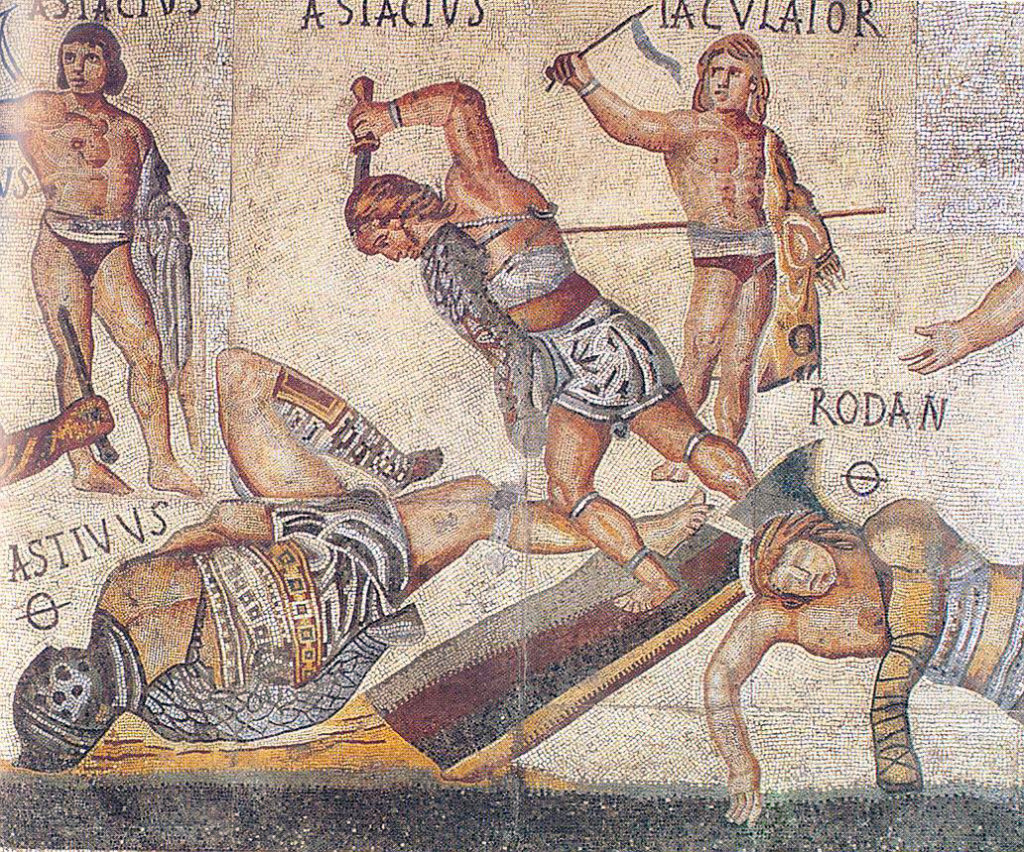Last updated on November 3rd, 2022 at 08:52 pm
If you could travel back to ancient Rome, what kind of jobs would be available to you? Ancient Rome had many jobs, from farmers and merchants to gladiators and senators.
If you had the chance to go back, could you find something like your current day job?
Let’s take a closer look at some of the most common assignments in ancient Rome and explore how they have changed over the years.
Ancient Careers of Ancient Rome
When most people think of ancient Rome, they imagine a society dominated by warriors and politicians. However, many other types of jobs were available.
For example, Rome still required farmers to harvest crops and raise animals like many other societies. They also needed to run the businesses that supplied the kingdom with goods and services. And, of course, they needed soldiers to protect its borders.
So, while you’re bound to see similar jobs as you see today, it’s likely that you’ll see some that were specific to Rome during that time in history.
By naming and discussing various professions in ancient Rome, this article may inspire you to learn more about this great empire and its culture.
Farmers
Ancient Rome, like most empires, needed farmers to maintain a food supply. This was especially important during times of war when the realm had to feed its soldiers.
Farming families in ancient Rome managed large swaths of territory that consisted of farmland.

These farms were responsible for supporting the enormous urban populations. As a result, numerous agricultural jobs, such as planting, sowing, reaping, and harvesting.
Jobs in operating mills and granaries were also considered necessary back then. However, the slaves mostly did field work for farming since they provided cheap labor.
Wealthy families mostly did agriculture on large estates in towns, and they hired managers to oversee their land. Farmers in Rome grew crops like wheat, barley, oats, honey, grapes, and vegetables. In addition, they commonly raised animals like beef and pork.
Business Owners
The ancient Roman economy was booming, creating business opportunities. Rome had many businesses, from bakeries and restaurants to clothing shops and furniture stores.
Businesses in ancient Rome were often family-run and passed down from generation to generation. The most successful companies in the old city had ships that sailed the waters around the Empire, searching for other lands with goods to trade.
Other typical trading jobs for business owners involved weapon making, fishing, hairdressing, and even making tools. In addition, the Romans built roads to facilitate exchange around the Empire better.
Construction Workers/Architects/Engineers
The Roman Empire was massive and needed many people to help build and maintain its infrastructure.
Construction workers were responsible for creating the roads, bridges, and aqueducts that the empire was known for; they also built the homes, temples, and public baths that made ancient Rome such a comfortable place to live.
Architects designed these structures, while engineers made sure they were structurally sound. Society usually enslaved construction workers in ancient Rome but also paid some laborers.
Enslaved people
The society built the Roman Empire on the backs of enslaved people; slaves were owned by wealthy families and used for many types of labor.
Slaves in ancient Rome were often captured in battle or purchased from slave traders. They were treated poorly, but not always, and were a fundamental pillar of the old Roman economy.

It’s difficult to pinpoint an actual number, but many historians believe that approximately 25% of Rome’s population were slaves. Wealthy Patricians, as they were called, could own around 500 slaves, which they would use for whatever they needed them to do.
Slaves had the broadest range of professions regarding other members of society, while Patricians mainly owned land and lived a life of leisure and wealth.
On the other hand, Plebians held some of the most common occupations and had limited access to wealth. So, it was commonplace to see enslaved people doing farming, construction, domestic services, and manufacturing.
Although slaves owned by citizens who lived in the cities had a much better life and were educated, these educated slaves had countless skills and were virtually priceless.
Slaves like this were usually teachers and accountants; some taught medicine or worked as lawyers.
Over time, the treatment of slaves “softened,” and laws were put in place to protect them from abuse as many realized how much they supported the economy of ancient Rome.
If mistreatment allegations were true, officials severely punished the owners.
For example, the government enacted laws barring owners from abandoning their slaves once they got sick and punishing them severely if they left them to die.
At one point, it was cheaper to leave them to die and buy another, and putting elderly slaves to death was considered the murder of a citizen.
Government/Politicians
The government in Rome was incredibly complex, and there were many opportunities for those looking to enter the political arena. Rome was initially governed by kings who had absolute power, but this eventually changed to a republic.
The elite members of society were members of the Senate, which included 600 positions; Senators retained their positions for life.
Other Roman jobs in government included tax management, military service, and public administration. So, it was common to see governors, censors, magistrates, and praetors.
Military
The Roman Empire was a primarily military empire that needed a giant army to protect its land and possessions from rivals and other kingdoms, tribes, and states.
Ancient Roman jobs for the military were available to people of all social classes.

This allowed those in the lower classes to earn money regularly and have their piece of land once they completed their service. As such, it also offered them an opportunity for upward social mobility.
Odd Jobs
As with any society, there are jobs specific to that time where people fulfilled roles that we would find unusual.
Some jobs were considered taboo, while others were more like a novelty. Examples of these include:
Whipping Boys – These were young boys who took beatings whenever members of royalty misbehaved to teach them how to behave correctly.
The bond developed by the whipping boy and his young charge meant them to behave and end their partner’s misery. Whipping boys were given noble titles and estates for their service.
Armpit Hair Plucker – While this job may not have been as noble as a whipping boy, it was still necessary.
Armpit hair pluckers were responsible for ensuring that the patrons were devoid of armpit hair so they wouldn’t stink.
Fuller – Fullers were responsible for cleaning and thickening cloth; they did this by soaking the fabric in water, pounding it, and then drying it in the sun.
However, since they often needed to remove oils and other impurities, they would use urine because of the ammonia salts. As a result, Fullers would have to stand ankle-deep in urine all day, and the job was considered one of the most unpleasant.
Jobs Can Tell A Lot About a Society
Jobs can provide a lot of information about the society, especially for jobs in ancient Rome. They give us an insight into what was essential to the people of that time.
For example, the fact that there were whipping boys tells us that the elite members of society were very concerned with proper etiquette and manners. It also tells us that they were willing to take extreme measures to ensure their children learned these things.
The presence of armpit hair pluckers tells us that personal hygiene was important, but they didn’t have the same technology that we do today. This is also evident in the job of a fuller since they had to use urine to clean clothes.
Overall, looking at the different jobs available in ancient Rome can give us a good understanding of what life was like during that time. For example, would the people of Rome find our typical jobs odd?

